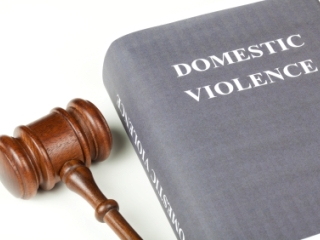Effective January 1, 2016, the California Legislature amended Civil Code Section 1946.7. This code section effectively enables a tenant to break a lease agreement prematurely, without penalty, if the tenant notifies the landlord in writing that he or she is a victim of an act of domestic violence, sexual assault, human trafficking, elder abuse, or abuse of a dependent adult. In order for the notice to be effective, the notice must be in writing, stating tenant’s intent to terminate the tenancy along with a (i) statement that the tenant was a victim of domestic violence, sexual assault, stalking, human trafficking, or abuse, (ii) the date the incident occurred, (iii) the name and physical description of the person(s) who committed the acts, (iv) and the tenant’s signature. In addition, the tenant must also attach a copy of either a temporary restraining order, protective order, written police report, or statement of a licensed medical or mental health professional on their formal letterhead regarding the act of domestic violence, sexual assault, stalking, human trafficking, or abuse. This notice must be given to the landlord within 180 days of the temporary restraining order, protective order, or police report being issued.
If this notice is properly given to the landlord, the tenant will only be required to pay up to 14 days rent following the giving of the notice. If the tenant vacates prior to the end of the 14 day period, and the landlord re-lets the premises to a new tenant, the landlord shall prorate the rent for the days the unit is rented. Within 14 days of the date of the notice (or earlier), the lease will be terminated as to the victim tenant, and the victim tenant will be released from his or her obligation to pay rent regardless of the remaining term on the lease. Given the delicate nature of the tenant’s circumstances, any information related to the reason for the lease termination is deemed to be confidential and the landlord will be prohibited from disclosing the tenant’s information with third parties unless ordered by the court or required under the law.
If the lease agreement is signed by a husband and wife, jointly and severally, and the wife is the victim of the domestic violence by her husband, and notifies the landlord of her intent to terminate the tenancy, what should the landlord do? In this situation, the victim is the only party who has a right under the law to break the lease. This means the husband would still be bound by the terms of the lease unless the husband and landlord mutually agree to terminate the lease. If the victim wife moves out, the landlord would potentially have a right to evict the tenant husband with a 3 Day Notice to Quit on the grounds the tenant husband committed an act of nuisance in breach of the lease covenants.
Within 21 calendar days after the tenant vacates the premises, the landlord will still be required to return the tenant’s security deposit, along with an itemized statement and receipts supporting any deductions for cleaning or repair costs pursuant to Civil Code 1950.5. Failure to timely return the security deposit along with the supporting documentation could subject the landlord to statutory damages totaling double the amount of the security deposit, in addition to actual damages. If the landlord is faced with the situation where the victim wife moves out, and demands a return of the security deposit which both she and her husband initially paid upon signing the lease, what should a landlord do? Most form leases contain the language that the “security deposit will not be returned until all tenants have vacated the premises and all keys returned and any security deposit returned by check shall be made out to all tenants named on this lease.” This language would suggest that if the victim tenant moves out, the landlord should retain the security deposit until the husband tenant moves out to cover the landlord’s potential damages that could occur before the end of the lease term. However, it would not be in the best interest of the victim tenant for the landlord to write a check in both parties’ names, requiring the victim tenant to have to interact with her abusive husband to get her money. One possible course of action for the landlord may be to hold on to the security deposit until the husband tenant vacates, and then divide the security deposit accordingly and send each party a check for their individual amounts. The landlord may want to perform a walk through on the date the victim wife moves out, so that the landlord can document any damages that are caused solely by the husband tenant and should be allocated to his share of the security deposit.
Situations involving domestic violence, sexual assault, stalking, human trafficking, and abuse are serious matters and must be handled delicately by landlords given the complex legal issues that may arise. If a tenant is the victim of domestic violence, sexual assault, stalking, human trafficking, or abuse, or if the landlord receives a notice from the tenant regarding the same, please contact our offices in order to know your rights and ensure that your actions comply with the law.
This article is intended for informational purposes only and does not constitute legal advice. The information contained in this article is specific to California law, and should not be relied upon in other states. For specific questions related to this article, please contact the Law Office of Ashley M. Peterson, and we would be happy to answer whatever legal questions you may have.


Comments 1
I have a restraining order against my husband, it was kick out orders. My husband is still on the lease. He’s taking me to court to fight the restraining order, just for my information, will he be able to just come back and live here, he’s been out since July this year.